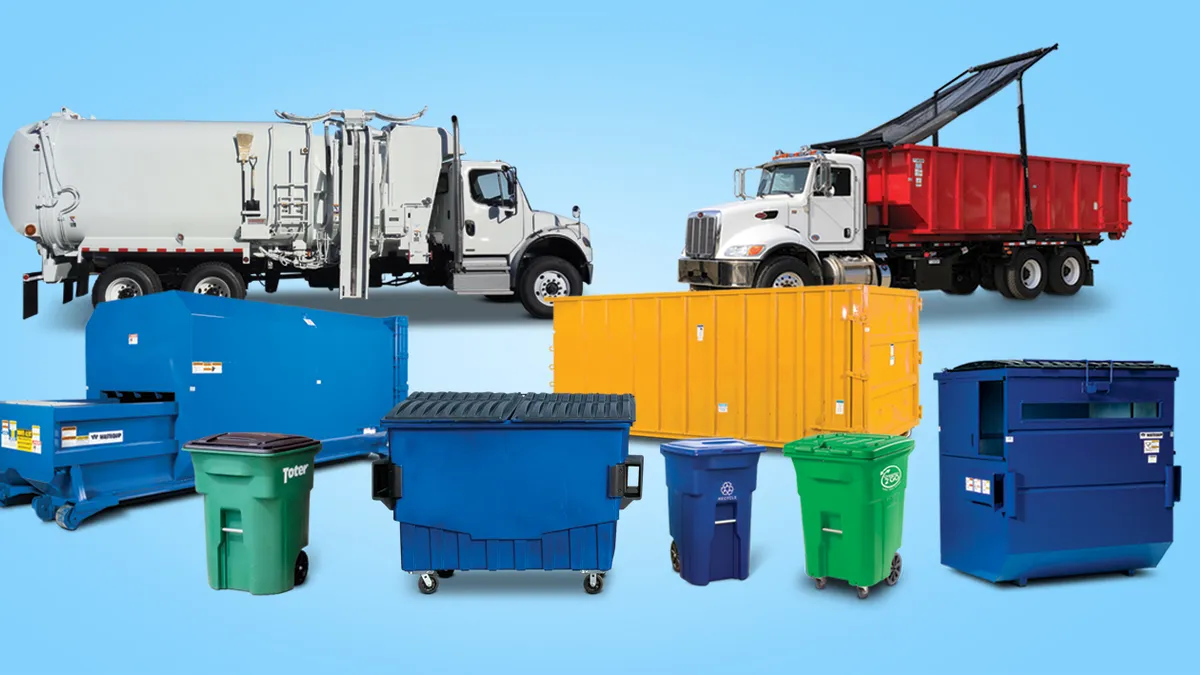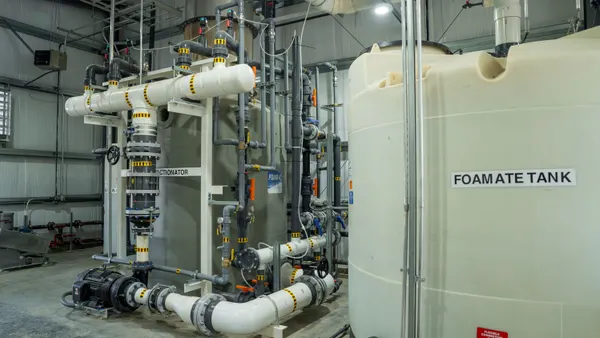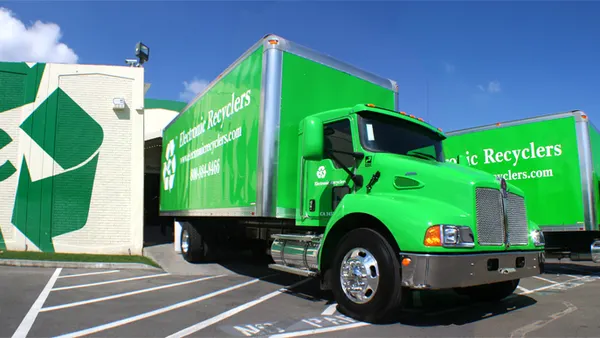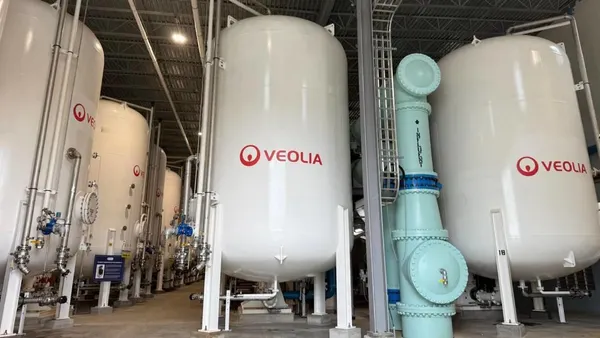Dive Brief:
- Wastequip, the company behind Toter containers and other waste-handling equipment brands, is moving forward with efforts to cut one-quarter of the virgin resin it uses throughout its entire cart manufacturing process.
- A life cycle analysis of Toter carts that RRS led last year found that Wastequip’s Project25 commitment could help reduce each cart’s carbon footprint by at least 9%. It's a gradual, multifront effort: The company aims to boost the amount of postconsumer resin (PCR) and postindustrial resin (PIR) in its carts while also extending a cart's lifespan to avoid the need for new carts as frequently.
- Wastequip also wants to increase transparency and traceability for customers. As of 2022, all customers will get information about how much PCR and PIR each cart contains for six of Toter's top colors, said Kristin Kinder, vice president of research and waste stream sustainability. That data will allow municipalities to "optimize that in their education and their communication channels with the residents," she said.
Dive Insight:
Wastequip's recent announcement comes out of a more concerted emphasis on ESG efforts through CORE, the company's corporate responsibility program, over the past two years. Project25 is an “umbrella goal,” Kinder said. The recent life cycle assessment was key in addressing how the company will apply the goal to Toter.
"All of that data came together to give us a really honest look at how a single Toter cart impacts the environment, from the materials that we use, to how we manufacture it, to what happens to it when it's at the curb, and then at the end of its life as well," she said.
"We really were able to use that to find the most impactful place to make changes," she said. "And probably the key learning of this for Project25 is that virgin resin is responsible for 62% of our cart carbon emissions. So if we want to make a meaningful change, that was the best place to start."
Data from the assessment also showed that extending a cart's lifespan from nine years to 11 years offered a similar overall carbon footprint reduction as if a cart were formulated with almost 50% recycled content, Kinder said.
Now, Wastequip wants to pass along more sustainability data to customers. The initiative comes as private companies and municipalities alike eagerly share goals with investors and the public about cutting their greenhouse gas emissions.
The Recycling Partnership, which supports the introduction and expansion of carts in curbside recycling programs across the U.S. and does not have preferred agreements or contracts with any one cart manufacturer, has for the past two years required that cart vendors involved in its grants formulate their carts with at least 5% PCR, according to Chief Community Strategy Officer Cody Marshall. That threshold took into account what each manufacturer could achieve without compromising on color, price or warranty. As technology evolves, the organization will revisit that figure, Marshall said.
Marshall also noted that some haulers are stepping up in this area as well. Waste Management, for example, partnered with Cascade Cart Solutions early last year on carts that contain 10% PCR using material collected by Waste Management.
Together, those forces are increasing demand for carts with increased recycled content, a trend "that will continue to pull the bulky rigids from MRFs to the reclaimers to the carts, and it's just a really great demand pool and the purpose of doing it," he said.
Individual cities have also touted efforts to innovate their cart offerings. Boston earlier this year rolled out carts from Rehrig Pacific made partly from recycled ocean-bound plastics, with 40% of the overall blend coming from postconsumer recycled material.
Wastequip did not specify the average level of recycled content in its carts, saying it varies. The company did say a 100% recycled cart is possible.
It's unclear how the price of carts formulated with a higher proportion of recycled content compares with those with more virgin resin. Wastequip said that, like all products, price depends on demand and content availability. Broadly, resin prices are currently high.











